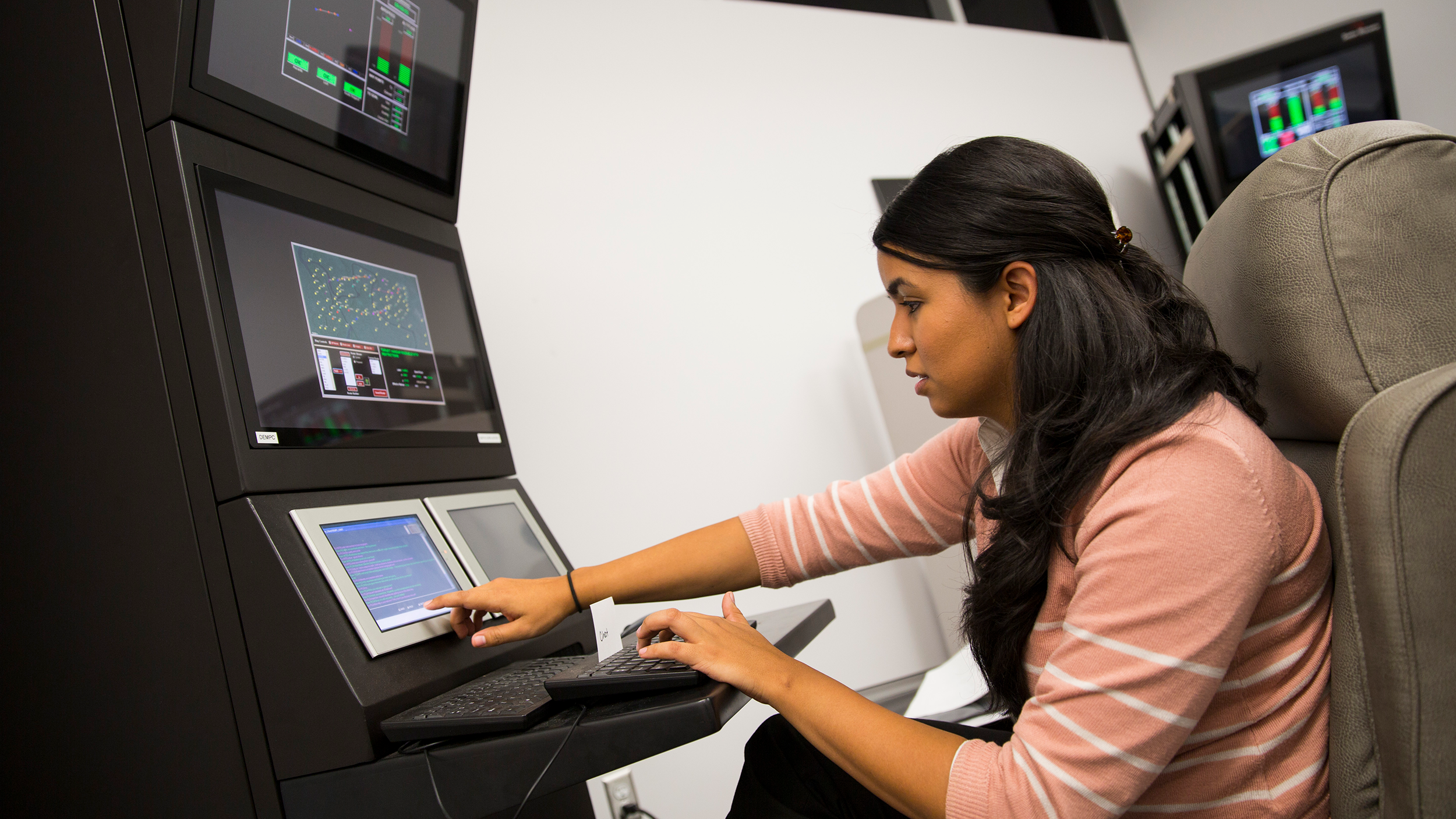
Human Systems Engineering
Building better machines using psychology and cognitive science.
Students become experts in human interaction with engineered systems by applying the methods of experimental psychology and cognitive science. Broad applications include aviation human factors, consumer psychology, teamwork, health and hospital safety, learning, product usability, social cognition, sports performance, threat detection and user-centered design.
Projects presented at the Innovation Showcase involve the application of psychological principles to problems and questions determined by a client sponsor. For example, students might work with a startup company to provide website or product usability evaluations, consult with a community organization to develop improved methods for real-world practices, or perhaps develop a new piece of software.
Capstone projects – Fall 2025
-
Briana Montoya’s project addresses alarm fatigue in healthcare settings, where constant emergency signals overstimulate medical staff and disrupt patient comfort. The WristList concept proposes a smartwatch-style device that lists only the alarms relevant to assigned patients. By filtering alerts, the…
-
Hannah Mileson explores how aesthetic human factors engineering extends beyond traditional usability to examine psychological responses to design by establishing an extensive literature review. The project analyzes the relationship between aesthetics and usability, drawing on theories and methodologies within human…
-
Janella San Juan examines how situational awareness impacts aviation safety, particularly for student pilots facing high cognitive demands and multitasking challenges. This study reviews existing literature on decision-support systems and situational awareness tools used in flight training. The findings highlight…
-
Katie Solliday’s project examines ongoing accessibility challenges in the U.S., despite the Americans with Disabilities Act of 1990. Through literature review, surveys and interviews with individuals with disabilities, the study identifies persistent barriers to accessibility. Recommendations for redesigning selected spaces…
-
Natalie Rodriguez evaluates and updates the content of the Laboratory for Energy and Power Solutions Microgrid Bootcamp, a recurring three-day training program designed for beginners. Using survey data collected from past participants and applying a human systems engineering lens, the…
Thank you for joining us for the Fall 2025 Innovation Showcase
Friday, Dec. 5, 2025
3–5 p.m.
Sun Devil Fitness Complex, Polytechnic campus